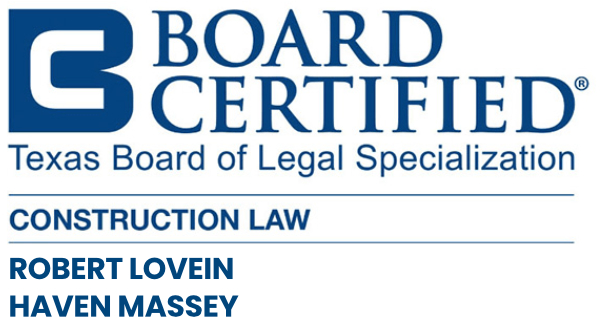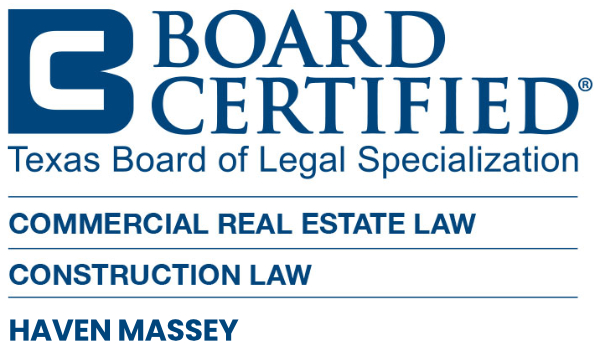FLSA investigations, audits, and claims can have a serious financial and time impact on an employer and therefore should be taken serious and aggressively defended. Lovein Ribman’s FLSA employment attorneys are well versed, tried, and testing in defending FLSA claims and assisting employers with responding to a Department of Labor (“DOL”) investigation or audit. If you have received a DOL notice or an FLSA Complaint, please call us at (888) 362-2483 or submit the Contact Form for a free consultation.To learn more about the FLSA process, please read below.
The federal Fair Labor Standards Act (“FLSA”) establishes minimum wage, overtime pay, record-keeping, and child labor standards for full-time and part-time employees in the private sector and in federal, state, and local governments. The FLSA applies to Texas employers whose business “affects interstate commerce”. The U.S. Department of Labor and Courts have attached a broad meaning to the term “interstate commerce” and generally hold that interstate commerce exists if: (1) the employer sells goods/services in other states; (2) the employer routinely orders materials or supplies from out-of-state vendors; or (3) the business is located next to a boarder or interstate highway, in which it is presumed that the employer’s customers have traveled from out of state. In a very real sense, practically anything connected to our modern network economy will be sufficient to be considered involvement in “interstate commerce”; and hence, to be safe, Texas employers should assume the FLSA applies.
Pursuant to the FLSA, covered employees, referred to as “non-exempt” employees, are entitled to receive a minimum wage of $7.25 per hour and overtime pay at a rate not less than one and one-half times their regular rate of pay after working 40 hours in a 7-day workweek. Typically, FLSA claims involve unpaid overtime pay, as opposed to a claim that the employer failed to pay a minimum wage.
It is not uncommon for the principal amount of unpaid overtime time to be fairly de minimus. However, what makes FLSA claims so serious, is that if the employer is found to have violated the Act for failure to pay wages or overtime pay, then in addition to awarding the unpaid wages, the Court as a matter of course will also award liquidated damages to compensate the employee for the delay in receiving the wages. In addition, the Court will award the employee reimbursement of attorneys’ fees and costs, which commonly far exceed the actual claim amount. Further, if the Court finds that the employer “repeatedly” or “willfully” violated the Act, then the Court can issue civil penalties up to $1,000 for each violation. As such, even a small principal claim for $10,000.00 in unpaid overtime pay can easily exceed $75,000.00 – $100,000.00 or more, in the form of an award or judgment. As such, if you have been contacted by the Department of Labor (“DOL”) regarding a wage claim or an audit, or if you have been served with an FLSA civil lawsuit, take the claim serious even if the principal amount is insignificant.
Who is an Employee under the FLSA?
The FLSA only applies to employment relationships. As such, a true “independent contractor” would not be entitled to FLSA protection. However, simply labeling a worker as an independent contractor, when really an employee, can be a very expensive mistake. Under the FLSA, the definition of “employer” is broad and includes “any person acting directly or indirectly in the interest of an employer in relation to an employee.” Thus, for the purposes of the FLSA, Courts define “employer” more broadly than the term would be interpreted in most other traditional applications. To determine whether an employment relationship exists under the FLSA, Courts generally apply the “Economic Realities Test,” which focuses on “whether the alleged employee, as a matter of economic reality, is economically dependent upon the business to which he or she renders services.” Under this test, the Court will look at the following factors to determine if the worker is an employee: (1) the degree of control exercised by the alleged employer—more control implies an employment relationship; (2) the extent of the relative investments of the worker and alleged employer—more investment by the employer implies an employment relationship; (3) the degree to which the worker’s opportunity for profit and loss is determined by the alleged employer—independent contractor’s determine their own profit/loss by the price they charge; (4) the skill and initiative required in performing the job; and (5) the permanency of the relationship—permanency implies an employment relationship.
What is an “Exempt” Employee under the FLSA?
Exempt employees are not entitled to overtime pay under the FLSA. Some employers make the mistake in assuming that if an employee is paid a salary, then the employee is “exempt and the employer is not required to pay the employee overtime pay. This would be an incorrect assumption. Many employees, like receptionists, secretaries, file clerks, and technicians are all paid a salary, but are most likely covered, or “non-exempt” employees under the FLSA. Further, giving an employee a high-powered title, like “Director of Operations” does not, standing alone, make the employee exempt under the FLSA. Instead, for an employee to be considered “exempt” under the FLSA, the employer has the burden of proving that the employee falls under one of the few express statutory exemptions, to include executives, administrative, professional, computer technician, and outside sales, as discussed below.
The Executive Exemption: To qualify under the executive employee exemption, the employer must demonstrate the following: (1) that the employee is compensated on a salary basis at a rate of not less than $455 per week; (2) that the employee’s primary duty is managing the enterprise or, alternatively, managing a customarily recognized department or subdivision of the enterprise; (3) that the employee customarily and regularly directs the work of at least two or more full-time employees or their equivalent; and (4) that the employee has the authority to hire or fire other employees, or the employee’s suggestions and recommendations as to hiring, firing, advancing, or any change of status of other employees is given weight. This exemption is truly reserved for upper-level executives who are responsible for managing the affairs of the business.
Administrative Exemption: To qualify for the administrative employee exemption, the employer has the burden of proving all of the following criteria: (1) the employee must be compensated on a salary or fee basis at a rate of not less than $455 per week; (2) the employee’s primary duty must be the performance of office or non-manual work directly related to the management or general business operations of the employer or the employer’s customers. This means the employee must perform work directly related to assisting with running or servicing the business, in areas like tax, finance, accounting, budgeting, auditing, insurance adjusting, marketing, research, safety and health, human resources, and public relations; and (3) the employee’s primary duty includes the exercise of discretion and independent judgment with respect to matters of significance. Factors to consider include whether the employee has the authority to formulate, interpret, or implement management policies and whether the employee has the authority to commit the employer in matters that have significant financial impact.
Professional Exemption: To qualify for the professional employee exemption, the employer has the burden of proving all of the following criteria: (1) the employee must be compensated on a salary or fee basis at a rate of not less than $455 per week; and (2) the employee’s primary duty must be the performance of work requiring advanced knowledge in science or learning acquired by a prolonged course of specialized intellectual instruction (Learned Professional exemption), work requiring invention, imagination, originality or talent in a recognized field of artistic or creative endeavor (Creative Professional exemption), teaching, tutoring, instructing, or lecturing in an educational establishment (Teacher exemption), or holds a valid license or certificate to practice law or medicine (Practice of Law or Medicine exemption).
Computer Employee Exemption: To qualify for the computer employee exemption, the employer has the burden of proving all of the following: (1) the employee must be compensated either on a salary or fee at a rate of not less than $455 per week, or if compensated by the hour, at a rate not less than $27.63 per hour; (2) the employee must be employed as a computer system analyst, programmer, software engineer, or other similarly skilled worker in the computer science field; and (3) the employee’s primary duties include the application of system analysis techniques and procedures; the design, development, creation, or testing of computer systems; the design, documentation, testing, creation of computer programs related to machine operating systems, or a combination of the aforementioned.
Outside Sales Exemption: To qualify for the outside sales exemption, the employer must demonstrate that: (1) the employee’s primary duty is making sales or obtaining orders or contracts for services in exchange for payment; (2) the employee must be customarily and regularly engaged away from the employer’s place of business.
Liability under the FLSA
Any employee or former employee may file a complaint with the Department of Labor’s Wage and Hour Division, claiming that an employer failed to meet its obligations under the FLSA. The DOL has the authority to investigate and make a ruling, and if it determines that the employer owes the employee back wages, it may enforce the ruling by bringing its own civil action against the employer or by overseeing a settlement of the claim. Alternatively, and most commonly, the employee may bring a civil action in state or federal court to enforce his/her rights under the FLSA. Worst case, the DOL can file a criminal action against the employer for a willful violation of the FLSA.
















